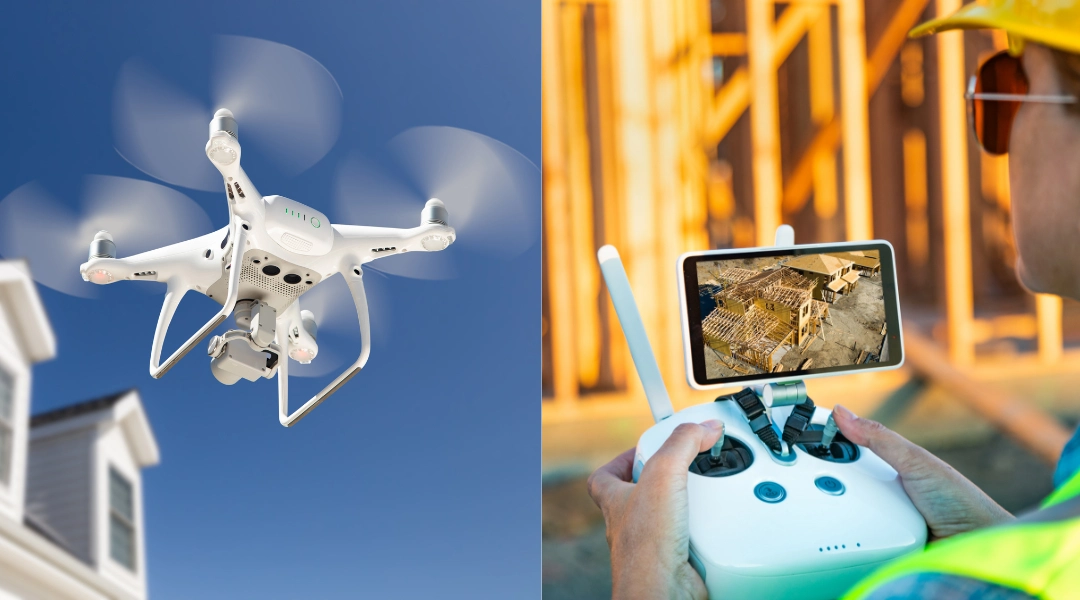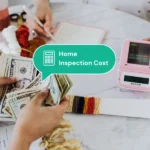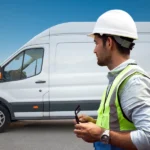Best Drones for Roof Inspections
Every home inspector or roof inspector must have a reliable drone that allows them to inspect house roofs with zero risk and maximum efficiency. With high-tech footage and advanced sensors, drones provide comprehensive reports and reach areas that would otherwise be impossible to check manually.
So if you are wondering what drone is best for roof inspections, let’s explore the best drones for roof inspections in 2025 that can enhance the accuracy and efficiency of your inspections.
Check out these 7 best drones for roof inspections:
Rank #1

DJI Mavic 3 Pro with DJI RC
- Flagship Triple-Camera Drone with 4/3 CMOS Hasselblad with 4K Camera
- 43-Min Flight Time, 15km HD Video Transmission
- Comes with FAA Remote ID Compliant
- Home Inspector Rating: 5/5
- Customer Ratings: 4.4/5
- Price: $1400
Rank #2

DJI Mini 3 Drone with 4K Camera
- This drone is recommended by top roof inspectors. It comes with a powerful 4K camera, up to 32800ft (10km) Video Transmission, True Vertical Shooting, GPS Auto Return Integrated, Mini Drone with Camera for Beginners
- 38-min Flight Time
- Home Inspector Rating: 5/5
- Customer Ratings: 4.5/5
- Price: $400
Rank #3

DJI Mini 4K Drone with UHD Camera
- This is DJI’s most recommended drone for home inspectors as it comes with 4K UHD Camera for Adults, Under 249 g, 3-Axis Gimbal Stabilization, 10km Video Transmission, Auto Return, Wind Resistance, Intelligent Flight
- FAA Registation is Not Required
- 31-Min Max Flight Time
- Home Inspector Rating: 4.9/5
- Customer Ratings: 4.5/5
- Price: $249
Rank #4

Bwine F7GB2 Drone with 4K Camera
- Comes with 4K Camera for Adults, 3-Axis Gimbal, 9800FT Transmission Range, FAA compliance, GPS Auto Return+Follow Me+Beginner Mode
- 50Mins Flight Time with 2 Batteries
- Home Inspector Rating: 4.2/5
- Customer Ratings: 4.4/5
- Price: $349
Rank #5

Veeniix V11PRO Drone with 8K Camera
- Its a professional roof inspection drone with 8K Camera for Adults, 3-Axis Gimbal Drone with 4K/30fps Video, 1/2 CMOS Sensor, 6KM Video Transmission Quadcopter, Professional Drone
- 80min Flight Time with 2 Batteries
- Home Inspector Rating: 5/5
- Customer Ratings: 4.5/5
- Price: $599
Rank #6

Potensic ATOM SE GPS Drone with 4K EIS Camera
- This is a fantastis GPS Drone with 4K EIS Camera, Under 249g, 4KM FPV Transmission, Brushless Motor, Max Speed 16m/s, with Auto Return feature, Lightweight and Foldable roof inspection drone
- 62 Mins Flight time
- Requires FAA registration
- Home Inspector Rating: 4.5/5
- Customer Ratings: 4.4/5
- Price: $250
Rank #7

Bwine GPS Drone with Camera 4K UHD
- It has a 4K Camera UHD – F7MINI, Under 249g, Auto Return, with Follow Me feature, Waypoint Fly, Circle Fly, 5GHz Transmission – Ideal for Adult Beginners
- 60-Min Flight Time
- FAA Registration is Not Required
- Home Inspector Rating: 4.2/5
- Customer Ratings: 4.3/5
- Price: $280
Key Features to Look for in a Roof Inspection Drone
| Feature | Explanation |
|---|---|
| High-Resolution Camera | Captures ultra-clear images for detailed inspection reports. Get a drone with at least 4K camera. |
| Thermal Imaging | Helps detect hidden moisture and insulation issues. |
| Long Battery Life | Minimum 30-45 minutes of flight time for thorough inspections. |
| Obstacle Avoidance | Reduces crash risks by detecting and avoiding obstacles. |
| Autonomous Flight Modes | AI-powered tracking and automated flight for ease of use. |
| Weather Resistance | Ensures functionality in various weather conditions. |
| Live Streaming Capabilities | Allows real-time monitoring and analysis during inspections. |
Importance of Drones in Modern Home Inspections
Traditionally, roof inspectors had to climb ladders and navigate dangerous slopes, risking falls, accidents, and injuries. However, with advancements in drone technology, aerial drones have revolutionized the way inspections are done nowadays. These high-tech tools allow inspectors to assess roofs efficiently and safely, eliminating the risks associated with manual inspections.
Drones capture high-resolution images and videos, making it easier to identify hidden issues such as damaged shingles, leaks, and structural weaknesses. With features like thermal imaging and AI-powered analytics, drones have become an essential tool for home and roof inspectors in 2025.
Benefits of Using Drones for Inspections
According to our recent survey of 3500+ home inspectors in the United States, most professionals agree that using a good drone enhances their business, improves inspection quality, and leaves a lasting impression on clients. Here are 10 key benefits:
- Drones eliminate the risk of falls and injuries.
- Helps to inspect hard-to-reach areas like high and steep roofs without physical limitations.
- Capture detailed images for thorough analysis with high-resolution imaging.
- It also helps to conduct inspections faster compared to manual methods.
- Some drones have thermal imaging capabilities which helps to detect leaks, insulation gaps, and hidden moisture damage.
- It also reduces the need for expensive scaffolding or lifts.
- Drones helps inspectors to provide detailed reports with high-quality visuals.
- Many drones can also operate in challenging conditions.
- Inspectors who have a drone, improve the client’s confidence as it’s a great way to impress homeowners with advanced technology.
- FAA Compliance Options – Modern drones comply with legal requirements for commercial use.
Check this interesting Reddit thread which clearly shows different opinions from home and roof inspectors regarding drone roof inspections.

Can Home Inspectors Use Drones?
Yes! Home inspectors can legally use drones for inspections, but they must comply with FAA regulations in the United States. Here are some key considerations:
- FAA Part 107 Certification – Required for commercial drone operations.
- Airspace Regulations – Avoid restricted zones and obtain necessary permissions.
- Insurance Coverage – Liability insurance is essential for protecting against damages.
- Privacy Concerns – Ensure ethical use of drone footage and avoid unauthorized recordings.
- Use Case Scenarios – Ideal for inspecting roofs, chimneys, solar panels, and gutters.
Get your drone registered at FAA(Federal Aviation Administration) by visting FAA Drone Zone.
Best Practices for Using Drones in Home Inspections
Always remember to conduct pre-flight checks to ensure the drone is in good condition.
Follow FAA regulations and obtain necessary permissions.
Use high-resolution cameras for detailed images and videos.
Avoid flying in extreme weather conditions.
While flying drones, always maintain a safe distance from obstacles.
Inspectors must regularly update drone firmware and software.
Inform clients about drone usage before conducting inspections.
Common Mistakes to Avoid in Drone Roof Inspections
- Flying in poor weather conditions – Because high winds and rain can affect drone stability.
- Ignoring FAA regulations – Make sure to always stay compliant with legal requirements.
- Not calibrating sensors properly – Always remember to calibrate the drone sensor before flying, ensuring accurate imaging and positioning.
- Overlooking software tools – Check for your drone’s software feature and utilize advanced features including AI analysis for better insights.
- Insufficient battery planning – Plan for emergency situations and always carry extra batteries for uninterrupted inspections.
- Flying too low or too high – Having an idea of the optimal altitude of your drone is important for clear footage.
- Ignoring privacy concerns – Respect everyone’s privacy and avoid capturing unnecessary footage of neighboring properties.
How Much Does a Drone Roof Inspection Cost?
In the U.S. home inspection market, drone roof inspections typically cost between $200 and $400 per inspection, depending on the property size and drone capabilities. Some inspectors may also charge higher rates for using high end industrial drones for roof inspection, thermal imaging or detailed analytics.
Top Brands for Roof Inspection Drones: DJI, Bewine, Potensic, Autel Robotics, Parrot, Skydio.
Conclusion
Drones have completely transformed roof inspections, making them safer, faster, and more accurate. A modern home inspector or roof inspector must invest in the best drones to ensure high-quality inspections, minimise risks, and enhance overall efficiency.
Usage Disclaimer
Note that drones must be used responsibly and operated by trained individuals. Always adhere to FAA regulations, obtain necessary certifications, and fly within legal boundaries. Mishandling drones can cause harm, so always follow safety guidelines to prevent accidents. Use drones safely and ethically for professional home inspections!





